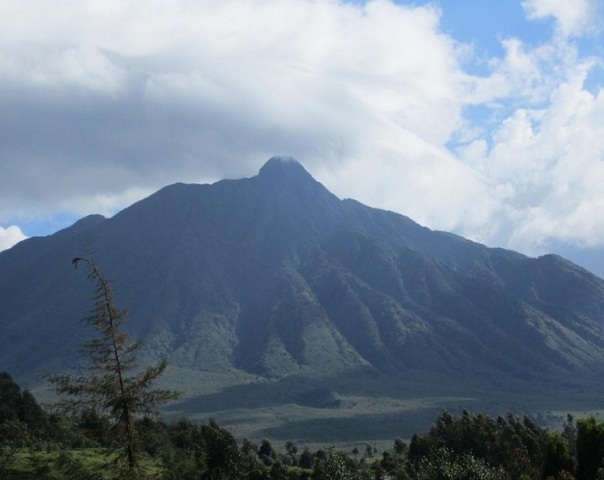Rwanda consists mostly of grassy uplands and gently rolling hills. Read on to know some interesting and fun facts about Rwanda.
Facts about Rwanda
Rwanda, just south of the Equator in central Africa, is a mountainous land located with Burundi to the south, Uganda to its north, Tanzania to its east and flanked by the Democratic Republic of Congo in the west. The total area of Rwanda is 26,338 square kilometers. It is the most heavily populated country in Africa. With few natural resources and minimal industry, it mainly exports coffee, tea, tin ore and hides. Rwanda's main industry is cement, agricultural products, soap and small-scale beverages. It also cultivates tea, coffee, bananas, pyrethrum and livestock. The majority ethnic group, the Hutus, overthrew the ruling Tutsi king in 1959. Over the next few years, thousands of Tutsis were slaughtered and around 150,000 were driven into exile to nearby countries. Later, a rebel group, the Rwandan Patriotic Front (RPF), was formed by the descendants of these exiles. If you want to explore more about Rwanda, go through the below mentioned lines as it offers some of the most interesting and fun fact about the country.

Image: John Cooke@flickr
Fast Facts
Continent: Africa
Capital: Kigali
Area: 26,338 km2
Population: 11,689,696
Currency: Rwandan Franc
Official Language: Kinyarwanda, French & English
Independence Day: 1 July 1962
Type of Government: Presidential Republic (Unitary Parliamentary)
Interesting And Fun Facts About Rwanda
-
In 1894 the explorer, Gustav Adolf von Götzen became the first European to explore Rwanda.
-
Karisimbi Volcano (4,519 m high), in the Virunga Mountains, is the highest point in Rwanda.
-
Rwanda is also known as the Land of a Thousand Hills.
-
In Rwanda, homosexuality is legal, although no specific laws regarding homosexuality exists.
-
Lake Kivu, Lake Muhazi, Lake Ihema, Lake Bulera, Lake Ruhondo and Lake Mugesera are the main water bodies in Rwanda.
-
Rwanda’s national currency is the Rwandan franc (Rwf).
-
The main languages spoken in Rwanda are Kinyarwanda, English, Kiswahili and French.
-
Rwanda’s average life expectancy is 40 yrs.
-
70 percent of people in Rwanda are literate.
-
Kigali is Rwanda’s capital. Rwanda is largely a rural country with about 90% of the population involved in agricultural, agro-processing and mineral work.
-
Rwanda (Ruanda) and Burundi (Urundi) became a part of German East Africa in 1890.
-
During the First World War Belgian forces captured Rwanda and Burundi.
-
Ruanda-Urundi, a League of Nations Trust Territory administrated by Belgium, was formed After the First World War.
-
Ruanda-Urundi became a United Nations Trust Territory governed by Belgium following the Second World War.
-
Agriculture and cattle is the traditional way of life in Rwanda. Rwandan people do not form villages but each family is surrounded by its own fields.
-
The Rwandan king was driven into exile in Uganda in 1959.
-
In 1962, Rwanda attained Independence.
-
Around the eleventh century, the Hutu people settled in Rwanda.
-
Around the fifteenth century, Tutsu people migrated to the region.
-
First of Rwanda's ethnic groups to inhabit the region were the Twa (a Pygmy people).
-
In 1985, author of Gorillas in the Mist, Dr. Dian Fossey, died in Rwanda. In the Parc des Volcans, Dr. Fossey worked with mountain gorillas. It is thought that a poacher killed Dr. Fossey.
-
The most dominant religions in Rwanda are Roman Catholic, Protestant, Adventist and Muslim. Rwanda’s population is 8,722,000.
-
In 1993, an agreement was reached to end the civil war (the Arusha Peace Accords).
-
The Presidents of Rwanda and Burundi were both killed in April 1994 when their plane was shot down over Rwanda.
-
Genocide and massacres that lasted until July 1994 took place because of the assassination of the Rwandan President.
-
To deal with a number of people responsible for the genocide, the United Nations appointed an International Tribunal in 1995.
-
The head of the state of Rwanda is its president who is elected every seven years by its citizens. The President has been conferred great constitutional powers such as creating policy along with his cabinet, exercising the prerogative of mercy, negotiating and signing treaties, commanding the army, and declaring war or a state of emergency. The president also appoints the prime minister and the cabinet.
See also
More from iloveindia.com
- Home Remedies | Ayurveda | Vastu | Yoga | Feng Shui | Tattoos | Fitness | Garden | Nutrition | Parenting | Bikes | Cars | Baby Care | Indian Weddings | Festivals | Party ideas | Horoscope 2015 | Pets | Finance | Figures of Speech | Hotels in India : Delhi | Hyderabad | Chennai | Mumbai | Kolkata | Bangalore | Ahmedabad | Jaipur
- Contact Us Careers Disclaimer Privacy Policy Advertise With Us Lifestyle Sitemap Copyright iloveindia.com. All Rights Reserved.







